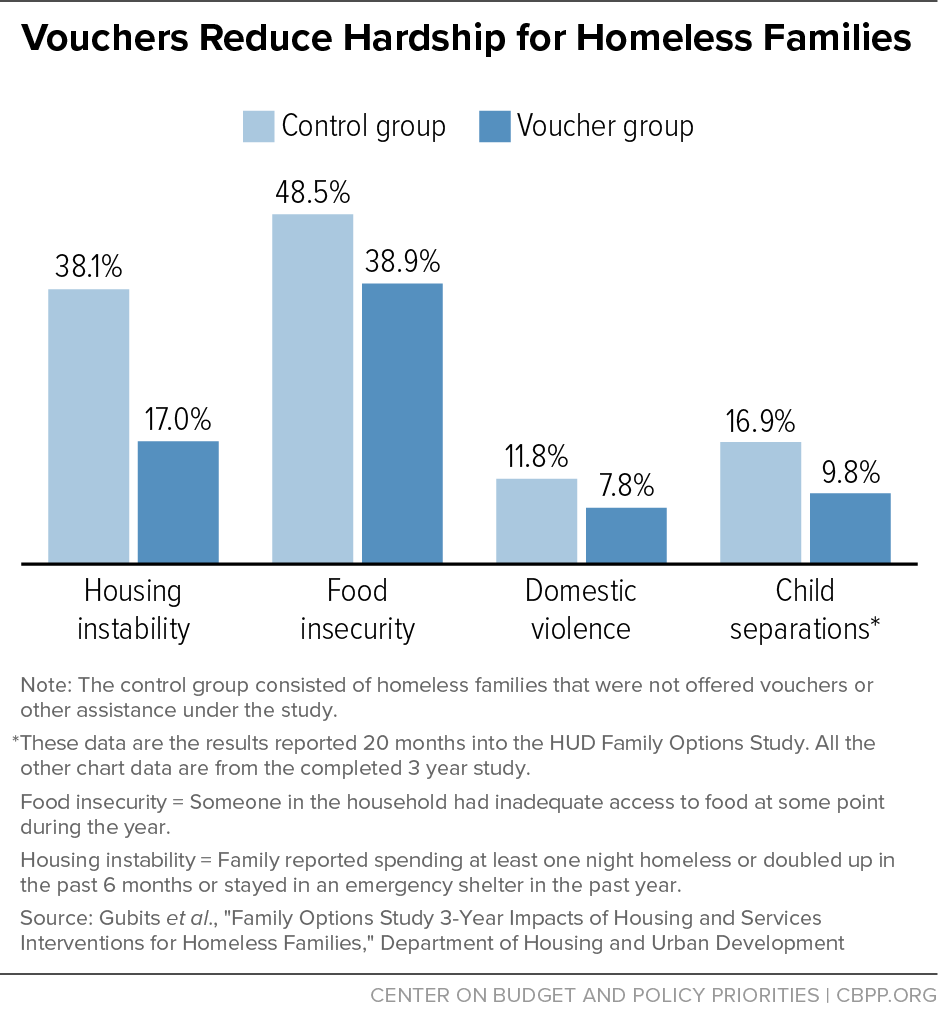BEYOND THE NUMBERS
Housing vouchers are the most effective tool for families seeking to escape the hardships of homelessness and raise their children in safe, stable homes, a major study from the Department of Housing and Urban Development (HUD) finds. More than 300,000 children in the United States have recently endured the insecurities of homelessness. To make meaningful reductions in family homelessness — which harms children’s health and educational achievement — policymakers should expand the number of housing vouchers available to families.
The HUD Family Options study tracked more than 2,000 families who began the study in homeless shelters in 12 communities over three years. It found that vouchers are cost-effective relative to rapid rehousing and transitional housing, the two other interventions typically available in communities. However, homeless families are costly to help, no matter what type of assistance they receive.
By the end of the study, families who were assigned to receive housing vouchers were less than half as likely as the control group families (who weren’t offered vouchers or other assistance under the study) to have spent a night in a shelter again in the prior year or lived doubled up with other families in the last six months. Continued or repeated homelessness and housing insecurity remained endemic among the control group families — 38 percent of these families — had either been homeless or doubled up recently.
In contrast, rapid rehousing assistance and transitional housing had no impact on families’ risk of housing insecurity three years later despite the approximately $40,000 per family expense over the course of the study. The total cost of assistance for a family in the voucher group was only about 10 percent higher than for families in the other groups, yet vouchers achieved much better outcomes for families.
Families assigned to receive vouchers were also able to provide a better home environment for their children. Parents were a third less likely to experience domestic violence, and households were 20 percent less likely to have a difficult time affording food for their children. Earlier results from this study also showed that housing vouchers reduced children’s risk of living separately from their parents — either in foster care or temporarily living with other family members — 20 months after the study’s beginning. (See graph.)
The risk of homelessness is greater for young children (0-5 years) than for any other age, and young parents are also prone to homelessness. HUD recently reported that more than 150,000 families, including more than 300,000 children, stayed in homeless shelters at some point during 2015. Three federal agencies warned that homelessness is detrimental to children. Homelessness during pregnancy can lead to low birth weight, and homelessness early in life is associated with developmental delays. Children who experience homelessness also have a higher risk of enduring physical assaults, mental and physical health problems, and poor school performance due to these hardships and disruptive school moves.

